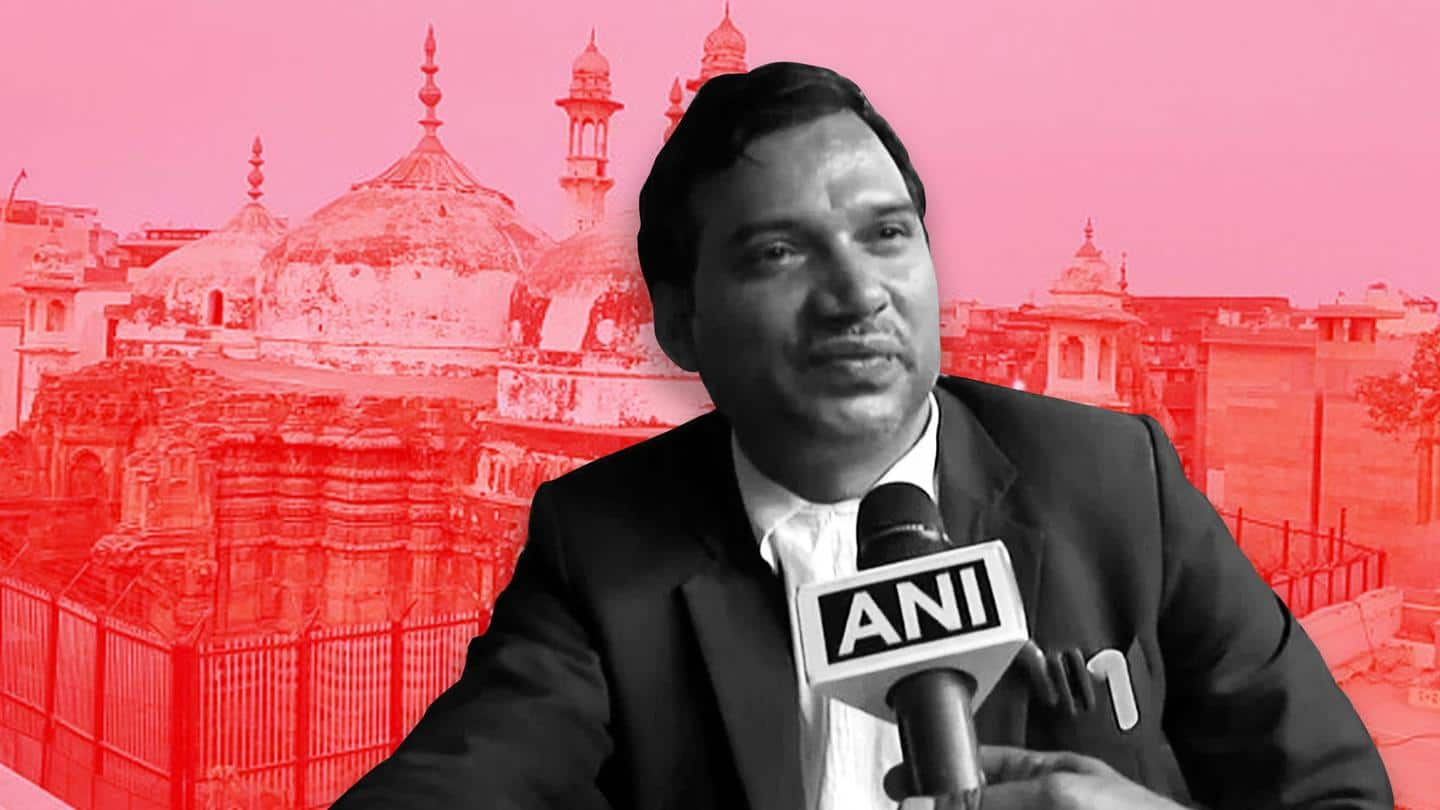
Gyanvapi Mosque survey: Singh betrayed me, alleges outgoing commissioner Mishra
What's the story
After a Varanasi court removed Ajay Mishra as the advocate commissioner for leaking the Varanasi Gyanvapi Mosque survey information to media on Tuesday, the latter said he was betrayed by Vishal Singh, who is the new Chief Advocate Commissioner. "I did nothing wrong. I was betrayed by Singh. He took advantage of my trusting nature," Mishra told NDTV. Mishra was sacked on Singh's complaint.
Context
Why does this story matter?
After a Shivling was allegedly found inside the mosque complex on Monday on the concluding day of the survey, the court ordered to seal the spot. Disputing the Shivling claim, SM Yasin—joint secretary of the Anjuman Intezamia Masjid (AIM)—said the object was part of the fountain at the wuzukhana. The Supreme Court also ordered to protect the area, without hindering Muslims' access for namaz.
Videographer cheated
New survey commissioner complained against Mishra
Claiming he was not biased, Mishra said both Singh and he prepared the report together till 12 am but had no idea that latter was conspiring against him. Mishra also said, "What can I do about it? I hired the photographer, he cheated." Meanwhile, Singh said he had complained to the court against Mishra's conduct, adding the videographer was giving statements and spreading rumors.
Other officials retained
Court termed Mishra's conduct 'irresponsible'
While sacking Mishra, the court termed his conduct 'irresponsible' and emphasized that any court-appointed official must act as a public servant. Meanwhile, Ajay Pratap Singh and Vishal Singh—the other two survey commissioners—have been retained and asked to submit the survey report within two days. Notably, the Muslim side had also repeatedly accused Mishra of being biased and wanted him removed.
Twitter Post
Check out Mishra's defense
Varanasi, UP | I've not done anything that reveals the secrecy of the matter. I was removed because of the allegations of Advocate Vishal Singh. I will respect the Court order. Whatever has happened is only because of Vishal: Ajay Mishra, Former Court Commissioner on his removal pic.twitter.com/jIyo7eqMjL
— ANI UP/Uttarakhand (@ANINewsUP) May 17, 2022
Ruling
Supreme Court to hear matter again on Thursday
Meanwhile, the Supreme Court heard the Muslim side's plea on Tuesday and ordered the Varanasi district administration to protect the area where the Shivling was found without impeding Muslims from coming to offer namaz. The SC also said that it would not interfere in the case and that the Varanasi civil court would settle the matter. It will hear the matter again on Thursday.
Places of Worship Act
AIM's lawyer seeks stay on all trial court orders
Senior advocate Huzefa Ahmadi—representing AIM's management committee in the SC—sought a stay on all the orders of the trial court, including the appointment of a commissioner, ANI reported on Tuesday. Citing the Places of Worship Act's Section 3, Ahmadi said, "The premises cannot stay sealed and the orders are illegal. If premises are sealed, that would be an alteration of the status quo."
Petitioner
Muslim side questions lower court's order to seal area
The Muslim side also questioned the manner in which the Varanasi court ordered an area inside the mosque complex to be sealed when the survey committee's report had not been submitted yet. "How did the court proceed based on the submission of the other party and seal the place? Look at the way the orders are passed," the Muslim petitioners told the Supreme Court.
History
Court allowed survey on Delhi-based women's petition
To recall, in April 2021, five Delhi-based women had sought permission from a Varanasi court for year-long, daily worship of deities Shringar Gauri, Lord Ganesh, Lord Hanuman, and Nandi in the mosque complex. Currently, devotees are allowed to worship Shringar Gauri only on the fourth day of Chaitra Navratri. Later, in April 2022, the court ordered a survey and videography by the court commissioner.
Context
Controversy began in 1991 after petitions against mosque
Back in 1991, lawyer Vijay Shankar Rastogi had filed a petition in a Varanasi court as the "next friend" of the Kashi Vishwanath Mandir's presiding deity. Rastogi had argued Maharaja Vikramaditya built a temple 2,050 years ago on the site where the mosque stands. Other petitioners claimed Aurangzeb built the mosque in the 17th century by removing a portion of the Kashi Vishwanath Mandir.
Background
The case so far
The 1991 Gyanvapi case was on hold for several years until the Allahabad High Court suspended the hearing. However, the case resurfaced in 2019 following the Supreme Court's decision in the Babri Masjid-Ram Janmabhoomi case. The Allahabad HC's decision was based on the Places of Worship Act, 1991, forbidding any changes to a worship place's religious character as it was on August 15, 1947.
Information
The Places of Worship Act, 1991 upheld by SC
Notably, the Supreme Court has consistently upheld the Places of Worship (Special Provisions) Act, 1991, while granting an exception only in the Babri Masjid-Ram Janmabhoomi case, stating in the judgment itself that the law would apply in all the other cases.